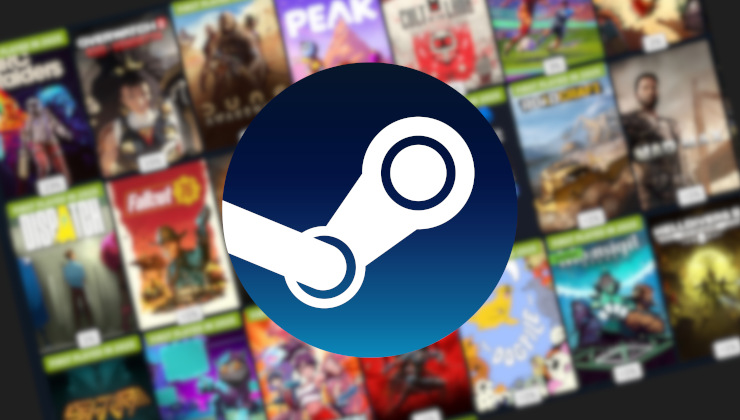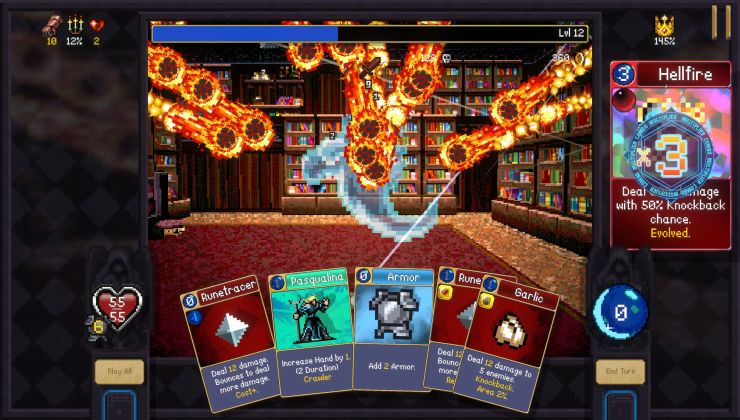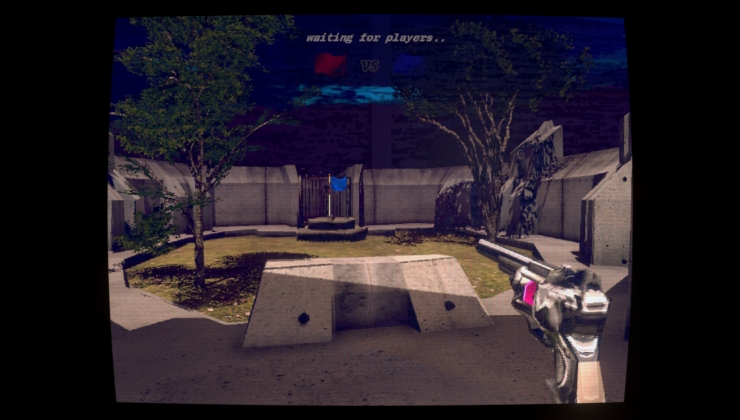So in the aftermath of my rather hastily put together article about Steam coming for Linux, I thought I should balance it out. After the masses of comments (hey it was a lot for us here!) and chatting to Cheese, I have been educated!
So, free and open source games are preferable yes but as we know they are not always an option, we won't be seeing the likes of Left For Dead 2 from Valve having any kind of source code release for example. Sidenote I will still buy commercial closed source games but I get why having the source is much preferred...well better late for me than never right!
What is stopping game developers going open source?
The way I see it from seeing the comments and from other developers I have spoken to personally it boils down to 4 things:
1) Developers don't understand how they can make money if they open up their source code
2) If they get the above then they are afraid that someone will completely rip their game off - it can happen but people can and will do this anyway
3) They don't know how to deal with code contributions/don't want to deal with contributions including copyright issues and the time it can take to manage it all
4) We need a good list of examples to show that it can be done
How can we solve these issues as a community?
Educating not only the developers themselves but the gamers, the people who actually purchase their games, let them understand why it is important to have the source code available which includes but is not limited to:
How to make money from opening up your code?
Well there are a good few ways to do it, rather than mumble on you should look the examples below to see exactly how they do it, I am a gamer after all not a developer so you would understand it more seeing from their side. Arx Fatalis is currently my favourite example of this in action:
Games that have done it!
Licensing/Copyright issues
One of the best ways to license the code (this is my opinion) is to put it under a GPL license that way any modifications to the code anyone uses would need to also be open source under the GPL (if my understanding is indeed correct). It doesn’t mean you need to put your art, sounds etc under the GPL either so don't think that!
So if say someone ported your engine to a new platform, they would need to release it under the GPL and you would still be free to use it for yourself as the original creator (eg. listing it on your website for sale along with the art, sound etc assets for that platform) as long as it still stays under the GPL (it would of course be double nice to credit the person/people who did the work for you ;)).
The only thing to remember about doing it that way is if you wanted to re-license the work, you would need permission from all contributors who's code you put back into the main branch of the code.
That is just one of the many ways to deal with the copyright and licensing issues, to each their own path but that's usually the most popular one.
So if in future if you know a developer who is beating hard on not opening up code or a gamer who just doesn’t care or understand why it is important, maybe send them to this article?
What are your thoughts you lovely bunch of outspoken gamers? Hopefully this time I hit the correct mark.
So, free and open source games are preferable yes but as we know they are not always an option, we won't be seeing the likes of Left For Dead 2 from Valve having any kind of source code release for example. Sidenote I will still buy commercial closed source games but I get why having the source is much preferred...well better late for me than never right!
What is stopping game developers going open source?
The way I see it from seeing the comments and from other developers I have spoken to personally it boils down to 4 things:
1) Developers don't understand how they can make money if they open up their source code
2) If they get the above then they are afraid that someone will completely rip their game off - it can happen but people can and will do this anyway
3) They don't know how to deal with code contributions/don't want to deal with contributions including copyright issues and the time it can take to manage it all
4) We need a good list of examples to show that it can be done
How can we solve these issues as a community?
Educating not only the developers themselves but the gamers, the people who actually purchase their games, let them understand why it is important to have the source code available which includes but is not limited to:
- More trust between the developer and their player base, which yes can increase sales!
- People can offer bug fixes and improvements
- People can and will port them to other platforms (see games list below)
How to make money from opening up your code?
Well there are a good few ways to do it, rather than mumble on you should look the examples below to see exactly how they do it, I am a gamer after all not a developer so you would understand it more seeing from their side. Arx Fatalis is currently my favourite example of this in action:
Games that have done it!
- Arx Fatalis opened up their engine but kept their assets closed (so you still need to buy the game, but the code is freely distributable under the GPL). Out of that has come Arx Libertatis which is a port of the games engine to run under different operating systems - Linux included with of course bug fixes along the way.
- Frogatto - GPL code with a dual license, if you contribute they accept the submissions and put it into the GPL code base for the official engine but you transfer your copyright to them (so they can still use it to make money) they sell the game on ios and Android for example.
- iD software frequently release their game engines as open source once they have been out for some time, out of these releases come projects like ioquake3 (so you can run games like Quake 3 Arena etc with improvements) and also iodoom3 (same sort of thing)
- Wikipedia's list of open-source games with some form of closed assets is probably thought the single best place to look for a list
- Wikipedia’s list of commercial games released as freeware is also a good place to pick up info from
Licensing/Copyright issues
One of the best ways to license the code (this is my opinion) is to put it under a GPL license that way any modifications to the code anyone uses would need to also be open source under the GPL (if my understanding is indeed correct). It doesn’t mean you need to put your art, sounds etc under the GPL either so don't think that!
So if say someone ported your engine to a new platform, they would need to release it under the GPL and you would still be free to use it for yourself as the original creator (eg. listing it on your website for sale along with the art, sound etc assets for that platform) as long as it still stays under the GPL (it would of course be double nice to credit the person/people who did the work for you ;)).
The only thing to remember about doing it that way is if you wanted to re-license the work, you would need permission from all contributors who's code you put back into the main branch of the code.
That is just one of the many ways to deal with the copyright and licensing issues, to each their own path but that's usually the most popular one.
So if in future if you know a developer who is beating hard on not opening up code or a gamer who just doesn’t care or understand why it is important, maybe send them to this article?
What are your thoughts you lovely bunch of outspoken gamers? Hopefully this time I hit the correct mark.
Some you may have missed, popular articles from the last month:
All posts need to follow our rules. Please hit the Report Flag icon on any post that breaks the rules or contains illegal / harmful content. Readers can also email us for any issues or concerns.
Quoting: "MyGameCompany, post: 4576, member: 68"That's not quite true. I went to GDC back in 2004, and I was pleasantly surprised at how open and helpful game developers are (both indies and AAA devs).
I think bararma was talking about the kind of user<->developer collaborative aspect that helps drive most non-game open source projects (I think I know what one of the major contributing factors for this is, but that's probably a discussion for another time), which is what an open source game would need to be able to have to thrive (at least so far as being an community driven project goes). You're right though - game developers are often (though not always, of course ;) ) awesome, open, genuine people.
Sofox, thanks for sharing that link. I hadn't come across it before. It's particularly interesting to see that they've had some small positive outcomes from bootleg versions.
An example that I find interesting is Jack Claw. Frozenbyte had hoped to build a community driven project that could benefit from a collaborative development model, but still fall back on direction and support from an established development studio, but it didn't quite reach critical mass and fizzled pretty early on.
0 Likes
Quoting: "MyGameCompany, post: 4576, member: 68"That's not quite true. I went to GDC back in 2004, and I was pleasantly surprised at how open and helpful game developers are (both indies and AAA devs). I was at the IGF Pavilion, demonstrating my Fashion Cents game which was a finalist that year, and lots of devs came by, looked at the game, and offered great suggestions for improving gameplay in areas I hadn't thought about (e.g., a 2-click alternative to drag and drop for laptop users with trackpads, printing the colors of the pieces on tooltips for color-blind users, ideas for additional power-ups, etc). They also offered publishing tips, and in some cases introduced me to publishers they knew. Most game developers I met weren't at all like the reclusive basement/bedroom coders that I envisioned.
Some indies also collaborate together on various things of mutual interest. I worked with with Gianfranco Berardi at GBGames, Roman Budzowski at Anawiki Games, and Ilya Olevsky at Valen Games (which has since closed up shop) on our Linux ports - we all worked together over e-mail to figure out how to build distribution-independent binaries, and freely shared information we learned. Erik Hermensen over at Caravel Games put me in touch with Jerry Jo Jellestad, who spent many patient weeks over e-mail teaching me the ins and outs of building Linux binaries and installers - he certainly didn't have to do that, given his busy schedule. Gianfranco and I still frequently collaborate to this day, helping test each other's games, sharing new Linux tips we come across, marketing tips, etc.
Going open source would certainly help devs collaborate better, though I don't see devs jumping in and helping code each other's games. Rather, I see devs looking at each other's code to see how they made something work. But then again, the aforementioned guys and I have privately shared some code over the years help each other get something working, so we didn't necessarily need to publicly open our source for that.
I' m glad to know collaboration is happenning, at least between indie developers. Still, I'm not talking just about helping each with their code, opensource doesn't necessarily encourage this kind of collaboration between developers. I meant using more and more common code, I mentioned sharing libraries, tools and engines. Currently almost everyone is developing a lot of code from scratch, I suggest working on the same engine/tools/libraries, when it makes sense.
Why opensource it? If that's meant as an honest and truly collaborative effort, why not? If it's good, more and more people will start using your engine, you can get help from that people, your engine will run on almost everything and some of your users will praise you. It can be seen from the other side, you can benefit from using a good engine someone else made opensource, and you can help him make it better.
When I say engines I could say any library or tool that could benefit others and you could benefit getting some help from those others interested. You could do all this with your friends without opensourcing, but opensource can get you new friends.
0 Likes
Another interesting example is the iPhone version of Doom done by id. It's actually based on prBoom:
[http://web.archive.org/web/20110508193500/http://www.idsoftware.com/iphone-doom-classic-progress/](http://web.archive.org/web/20110508193500/http://www.idsoftware.com/iphone-doom-classic-progress/)
So it's a good example of a company doing a source release, having the community keeping it up to date, and then being able to go back and reap the benefits. (The iPhone version is of course also released under the GPL).
I'm less sure of it, but I also think there's some similar stories from ScummVM.
[http://web.archive.org/web/20110508193500/http://www.idsoftware.com/iphone-doom-classic-progress/](http://web.archive.org/web/20110508193500/http://www.idsoftware.com/iphone-doom-classic-progress/)
So it's a good example of a company doing a source release, having the community keeping it up to date, and then being able to go back and reap the benefits. (The iPhone version is of course also released under the GPL).
I'm less sure of it, but I also think there's some similar stories from ScummVM.
0 Likes






 How to setup OpenMW for modern Morrowind on Linux / SteamOS and Steam Deck
How to setup OpenMW for modern Morrowind on Linux / SteamOS and Steam Deck How to install Hollow Knight: Silksong mods on Linux, SteamOS and Steam Deck
How to install Hollow Knight: Silksong mods on Linux, SteamOS and Steam Deck